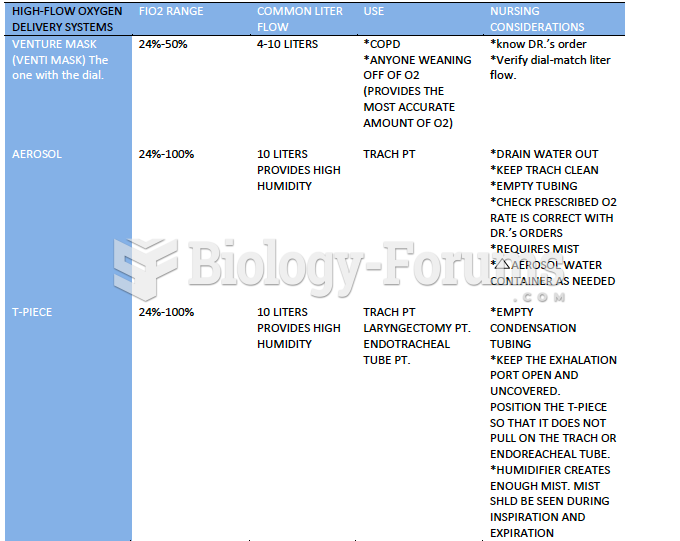|
|
|
There are more nerve cells in one human brain than there are stars in the Milky Way.
Giardia is one of the most common intestinal parasites worldwide, and infects up to 20% of the world population, mostly in poorer countries with inadequate sanitation. Infections are most common in children, though chronic Giardia is more common in adults.
Vital signs (blood pressure, temperature, pulse rate, respiration rate) should be taken before any drug administration. Patients should be informed not to use tobacco or caffeine at least 30 minutes before their appointment.
The B-complex vitamins and vitamin C are not stored in the body and must be replaced each day.
Medication errors are more common among seriously ill patients than with those with minor conditions.







